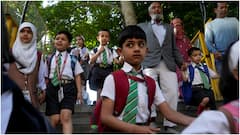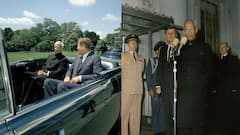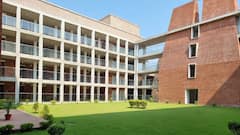General Knowledge For Kids: 50 Simple Quiz Questions About Lok Sabha Elections And Their Answers
Election Quiz: Here is a list of 50 questions about general elections in India to test your knowledge.

Lok Sabha Elections 2024: Parliamentary elections are due this year, and all political parties are prepared for the democratic exercise conducted every five years to elect members to the Lower House of Indian Parliament. The 2024 general elections will elect the 18th Lok Sabha as the term of the current government expires in May 2024.
India has a diverse socio-cultural fabric, and these elections are pivotal in shaping the country's future policies and governance. This extensive exercise, the world's largest democratic election, invites the nearly 95 crore eligible voters to cast their votes across 543 constituencies, utilising electronic voting machines (EVMs) for efficiency and transparency. The elections are overseen by the Election Commission of India to ensure free and fair conduct. After the results are declared, the party or the coalition with a majority of seats forms the government, with its leader becoming the Prime Minister of India.
Here is a list of 50 questions about general elections in India to test your knowledge.
50 Simple GK Questions About India's Lok Sabha Elections
Q1: When was the first general election held in India?
A: 1951-52
Q2: Who was the President of India when the first general elections were held in 1951-52?
A: Dr Rajendra Prasad
Q3: Who was the first Prime Minister of India elected through a general election?
A: Jawaharlal Nehru
Q4: What system of governance does India follow that necessitates general elections?
A: Parliamentary democracy
Q5: When were women first allowed to vote in India's general elections?
A: In India, women have been voting from the very first general elections (1951-52)
Q6: Which political party won the first general election in India?
A: Indian National Congress
Q7: How many general elections has India held since its independence?
A: 17 (the last Lok Sabha elections were held in 2019)
Q8: What was the significant outcome of the 1977 general election in India?
A: The Janata Party won. It was the first non-Congress government in India
Q9: Who was the first non-Congress prime minister of India?
A: Morarji Desai
Q10: What major electoral reform was introduced in 1989?
A: in 1989, Parliament amended the Representation of the People Act, 1951, to create a provision for the use of electronic voting machines (EVMs)
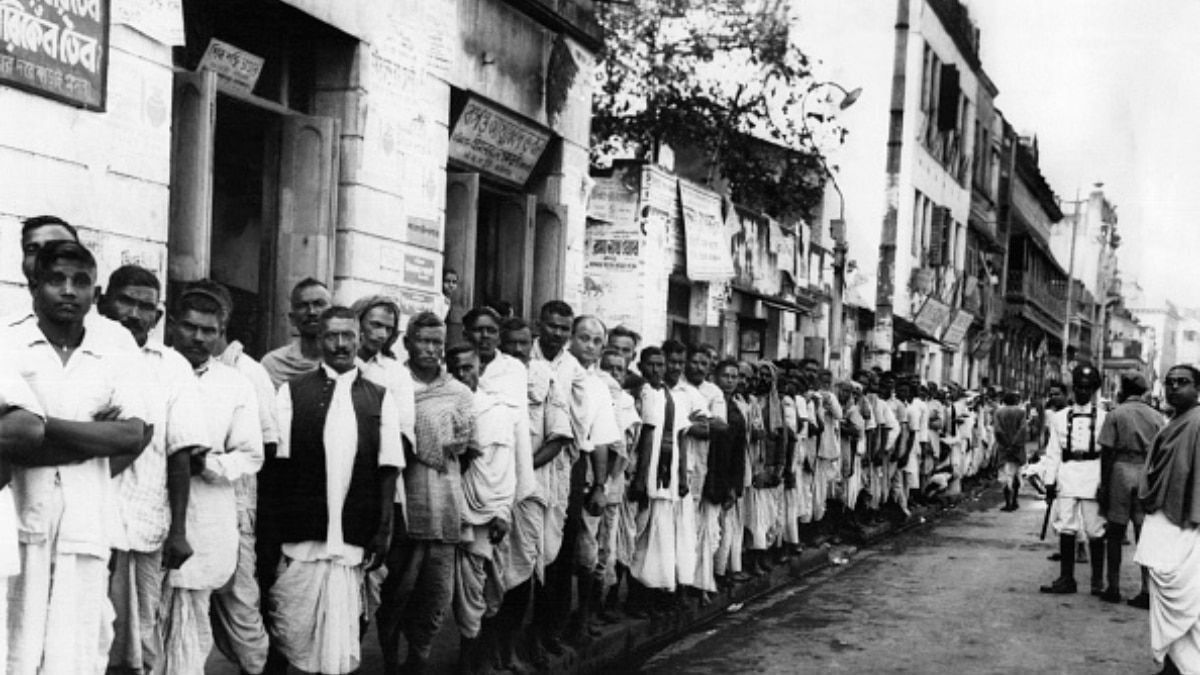
Q11: In which year did India transition to using EVMs for general elections across the country?
A: 2004 general elections saw the nationwide use of EVMs
Q12: In which year did India see its first coalition government at the Centre?
A: 1989, following the ninth general election
Q13: What is the main role of the Election Commission of India?
A: Conducting free and fair elections
Q14: Approximately how many eligible voters are there in India currently?
A: Over 94.50 crore as on January 1, 2023, as per Election Commission data
Q15: What is the minimum age requirement to vote in India's general elections?
A: 18 years
Q16: Which amendment to the Constitution of India reduced the voting age from 21 to 18?
A: The 61st Amendment Act of 1988.
Q17: What do EVMs do in India's elections?
A: EVMs record votes electronically
Q18: What is the Voter Verifiable Paper Audit Trail (VVPAT)?
A: A system for voters to verify their cast vote via a paper slip
Q19: How many Lok Sabha constituencies are there in India?
A: 543
Q20: What is the total strength of the Lok Sabha, including reserved seats?
A: 545 seats — 543 are elected, and 2 are appointed
Q21: What is the break-up of these seats in terms of General, Scheduled Caste, and Scheduled Tribe constituencies?
A: General: 412
SC: 84
ST: 47
Q22: What is a NOTA vote, and when was it introduced?
A: NOTA, short for None of the Above, was introduced in 2013 to allow voters to declare that they reject all the candidates fielded by every contesting party
Q23: What is the Model Code of Conduct?
A: The Election Commission of India enforces the Model Code of Conduct (MCC), monitoring expenditures and other measures, to ensure fair elections. MCC is composed of a set of guidelines for the conduct of political parties and candidates during elections. It comes into effect immediately after the election schedule is announced.
Q24: Are there any restrictions on government announcements during the Model Code of Conduct period?
A: Yes, the government cannot announce any new schemes, projects, or financial grants that may influence voters.
Q25: Who decides the election dates?
A: The Election Commission of India
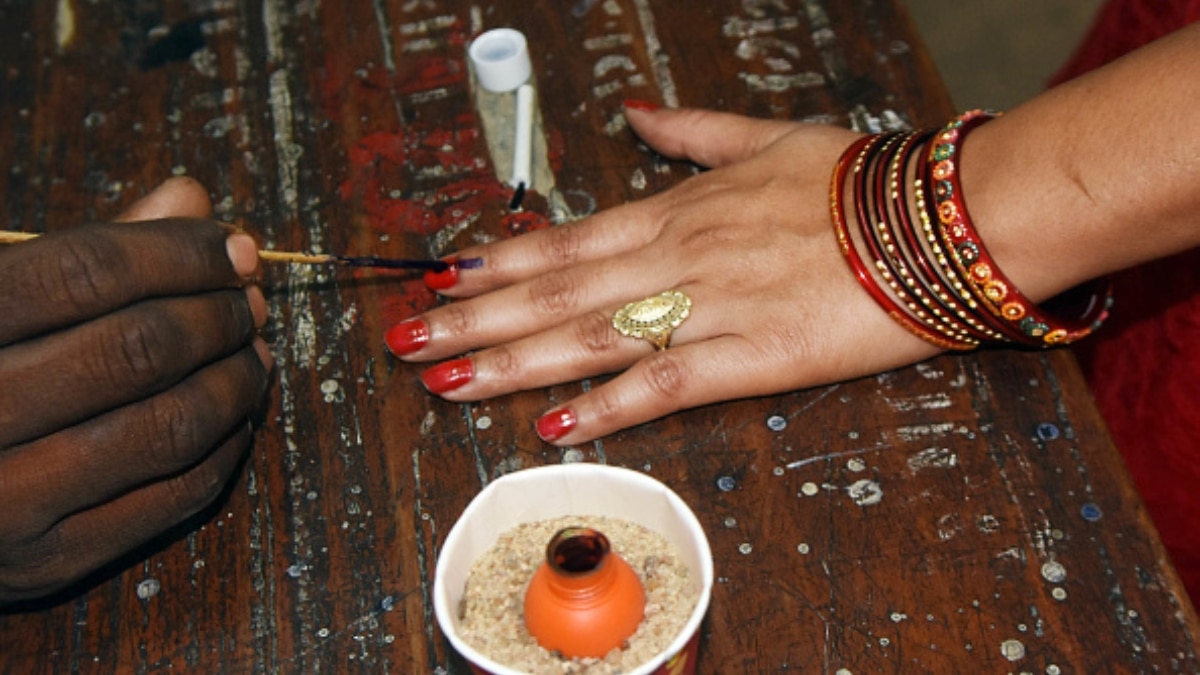
Q26: How are constituency boundaries drawn?
A: Delimitation Commission is appointed for this purpose, based on the latest census
Q27: How are exit polls regulated in India?
A: Exit polls can only be published after the last phase of voting is over
Q28: What was the voter turnout percentage in the 2019 general election?
A: The 2019 general election saw a turnout of over 67%
Q29: What is the role of the ECI mascot?
A: Raise awareness and encourage voter participation
Q30: How many phases were there in the 2019 general elections?
A: 7 phases
Q31: How many national parties participated in the 2019 general elections?
A: 7 national parties
Q32: How many political parties participated in 2019 Lok Sabha elections?
A: 673
Q33: How many candidates entered the fray in 2019?
A: 8,054
Q34: How many polling stations were set up for the 2019 general elections?
A: More than 1 million
Q35: Who was the longest-serving Chief Election Commissioner of India?
A: TN Seshan, known for his electoral reforms during the 1990s
Q36: What significant electoral reform was introduced in the 1951-52 general elections regarding reserved constituencies?
A: Seats were reserved for Scheduled Castes and Scheduled Tribes in Parliament.
Q37: How often does the Election Commission of India revise the electoral rolls?
A: The electoral rolls are revised annually to ensure up-to-date voter information.
Q38: What is the maximum duration within which general elections must be held in India after the dissolution of the previous Lok Sabha?
A: Within 6 months
Q39: What is the minimum age for a candidate to contest in Lok Sabha elections?
A: 25 years.
Q40: Under what circumstances can a person be disqualified from voting in general elections?
A: Non-residence, unsound mind, crime conviction, and corrupt or illegal practices related to elections
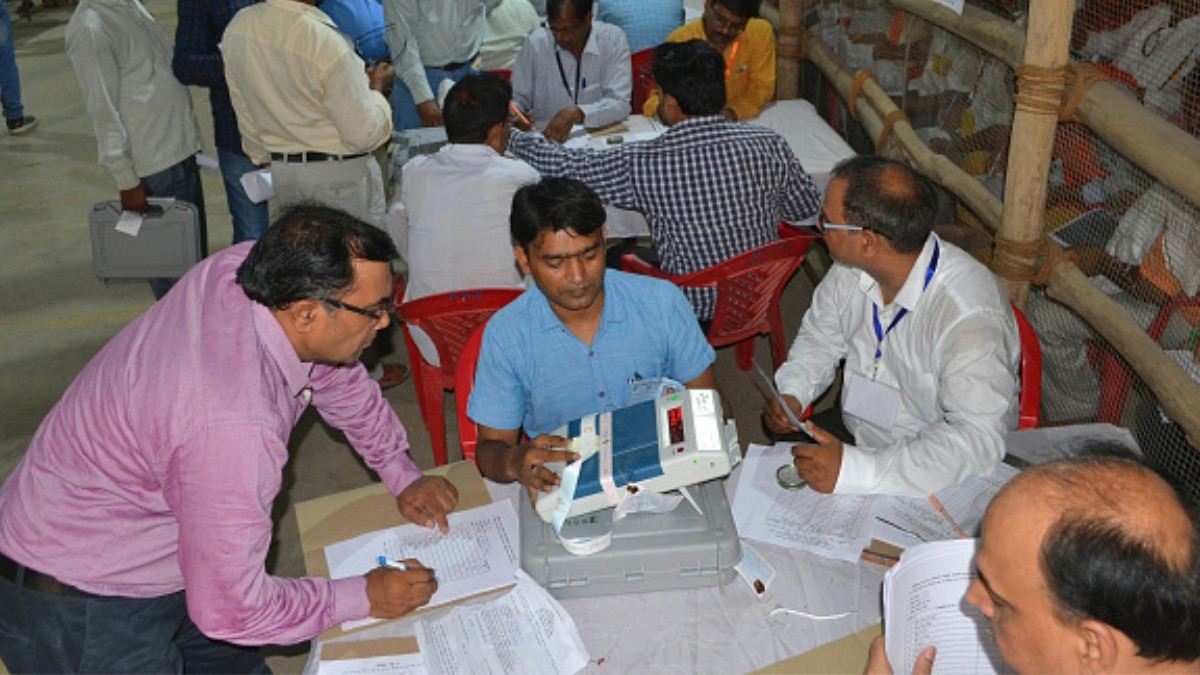
Q41: Can a non-citizen of India contest in the general elections?
A: No, only Indian citizens are eligible to contest in the elections
Q42: What document is essential for an Indian citizen to vote in general elections?
A: Voter ID card, also known as the Electors Photo Identity Card (EPIC)
Q43: What law governs the conduct of general elections in India?
A: The Representation of the People Act, 1951.
Q44: How is the expenditure limit for Lok Sabha election campaigns determined for a candidate?
A: The Election Commission of India sets the expenditure limits, which can vary by state and constituency size.
Q45: What mechanism is in place for the redressal of electoral grievances?
A: The Election Commission operates control rooms and helplines, and there are legal provisions for the adjudication of disputes.
Q46: What is the role of Election Observers appointed by the ECI?
A: They monitor the conduct of the election, including the polling process, counting of votes, and adherence to the Model Code of Conduct
Q47: Which Prime Minister served the shortest term after being elected through a general election?
A: Atal Bihari Vajpayee served the shortest term of just 13 days in 1996 after being elected through a general election before resigning due to an inability to garner a majority. He returned in 1998 for 13 months, and then in 1999 to serve a full 5-year term
Q48: How does the 'First Past the Post' electoral system work in India's Lok Sabha elections?
A: In India's 'First Past the Post' electoral system, the candidate who receives the highest number of votes in a constituency wins the election, regardless of whether they secure a majority of the votes
Q49: Can Indian citizens living abroad vote in general elections?
A: Yes, Non-Resident Indians (NRIs) can vote in general elections, but they must be physically present at their registered constituency in India on the day of voting. They cannot vote through postal ballot
Q50: Who allocates election symbols to political parties?
A: The Election Commission of India. These symbols help voters identify the candidates and parties, especially in areas with high illiteracy rates.
Education Loan Information:
Calculate Education Loan EMI














